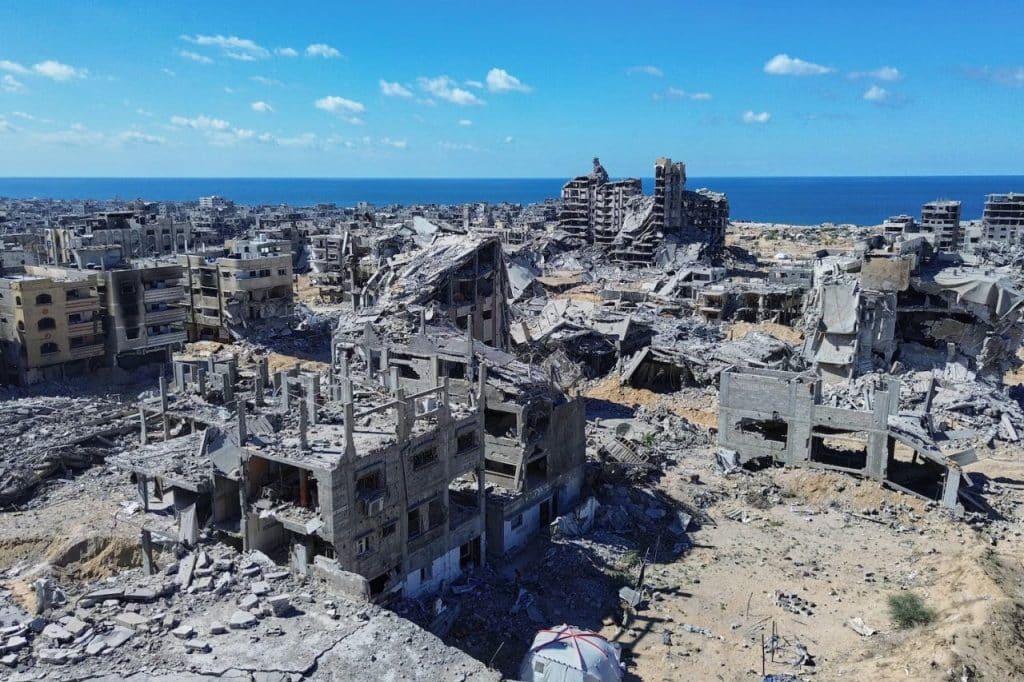When will multinational forces depart for Gaza? Trump’s message to Arab countries from Qatar.
After the first phase of the ceasefire in Gaza was launched, one of the main issues was the deployment of international forces in the region to play a role in disarming Hamas, managing the crossings, and rebuilding Gaza, at a time when concerns are growing about Gaza being divided into two regions, East and West, under the pretext of gradually dealing with its crises.
In addition, the deployment of multinational forces in Gaza based on the US plan faces numerous obstacles and problems, including what obligations the countries sending their forces to Gaza have and how much executive power these countries have to implement the ceasefire in light of Israel’s cautious behavior and Tel Aviv’s concerns.
Another issue is that many countries are reluctant to send their forces to Gaza in the form of multinational forces, because they see the situation in the region as still unstable, dangerous, and in a state of war.
Another question is how long these forces will stay in Gaza? Will their presence be as long as the UN peacekeeping forces in southern Lebanon, known as UNIFIL?
Meanwhile, Israel’s use of various issues to stop the ceasefire is one of the challenges to establishing a ceasefire and relative calm in Gaza, meaning that it has now used the issue of not receiving the bodies of the prisoners remaining in Gaza as a pretext to accuse Hamas of not adhering to its commitments and refusing to open the crossings; actions that double the challenges facing the implementation of the ceasefire agreement.
In this regard, Ibrahim Farihat, a professor of international relations at the Doha Center for Studies and Research, told Al Jazeera: Arab and Islamic countries agreed to Trump’s proposed ceasefire plan in Gaza to end the war there and the first phase of the ceasefire began, but the subsequent stages of the agreement, including the deployment of multinational forces and the issue of Hamas’ weapons, are serious challenges to the continuation of the ceasefire.
According to him, the multinational forces are now facing the most difficult issue in the second and third stages of the ceasefire, which is determining the fate of the weapons of the Islamic Resistance Movement Hamas.
Freihat considered the issue of stopping reconstruction in the areas under Hamas control in Gaza and starting it in the areas under Israeli control a dangerous scenario that, in the current situation, may lead to the division of Gaza into two parts, eastern and western, so that under the pretext that Hamas has not handed over its weapons, reconstruction in the western part of Gaza, which is under the control of this movement, does not start, and reconstruction begins in the eastern part, which is under Israeli control.
Trump’s message to Arab countries from the Qatar station
He emphasized that the success of the ceasefire depends fundamentally on the role of Arab countries in direct dialogue with Hamas to resolve the weapons issue, and one of the most important goals that led US President Donald Trump to stop in Qatar during his Asian trip was to send this message to the Arab parties that this is a great mission that they must carry out.
According to Farihat, the possible composition of multinational forces from Arab and Islamic countries would include Turkey, Egypt, Qatar and perhaps the UAE, and the Arabs have been provided with an opportunity to pressure the US government to rebuild Gaza in proportion to the extent of the destruction.
Also, “Ihab Jabarin”, a writer and expert on Israeli affairs, told Al Jazeera: Israel thought that after the ceasefire agreement, Gaza would gain many powers the next day, but this did not happen, and for this reason it is now trying to turn the issue of humanitarian aid and crossings into a factor for political blackmail because such issues are the only issues left for Israel to maneuver, which is why, more than two weeks after the announcement of the ceasefire agreement, it has raised excuses such as not receiving the bodies of all prisoners, disarming Hamas, tunnels, and the nature of the International Committee in Gaza.

